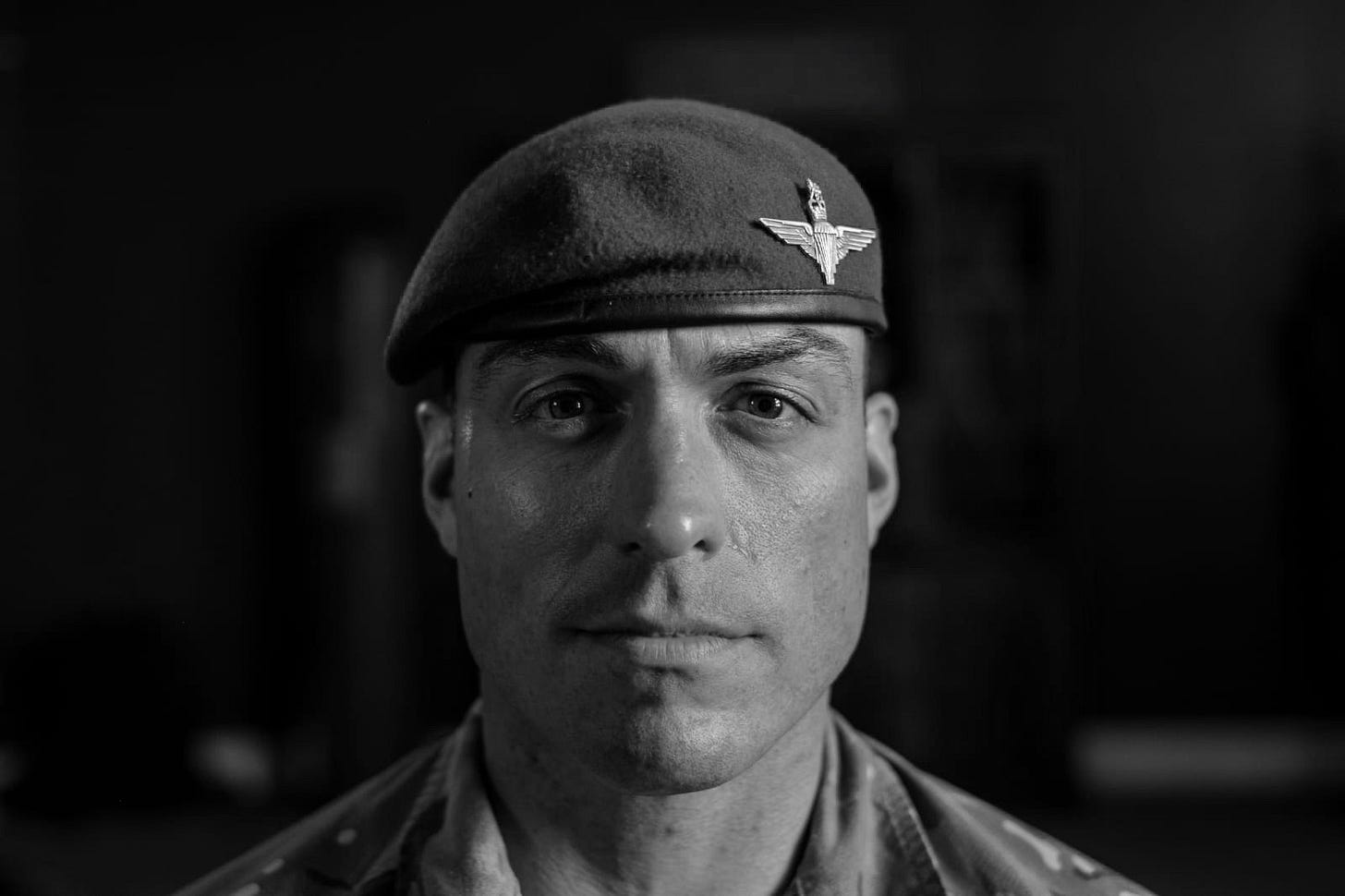For nearly twenty years, Andrew Fox served in the British Army. During his time in the Parachute Regiment and the Special Forces Support Group, he completed three tours of Afghanistan, as well as Bosnia, Northern Ireland, and the Middle East.
Upon leaving active service, he found a second career in academia, spending three years as a senior lecturer in the War Studies and Behavioural Science departments at the Royal Military Academy Sandhurst. Today, he focuses his efforts on writing, with published works exploring defence and foreign policy appearing in the New York Post, the Telegraph, and Spiked, and amassing a sizeable following on X (formerly Twitter) and Substack.
Why did we invite him on?
Whatever your view of Israel-Palestine is, one thing is undeniably true: most of us are prospecting from afar. We are all at the mercy of algorithms, cognitive biases, and social pressure, and it can take great effort to resist their influence. One method is to speak to those who truly know - those with real first-hand experience.
Andrew is one such person, and it’s curated a richly nuanced perspective. At a time when nearly all geopolitics is treated as an all-or-nothing game, he comes forth with a position that considers the strengths of each argument and melds them into coherence. We wanted to hear what he had to say.
What did we learn?
”It’s so alien - we struggle to get our heads around it in the West. If you were being hunted, the last thing you’d do is get your wife and children around you. But Hamas want people to die, they want their civilians to die. That’s why it’s unlike any other conflict.”
So much of this conflict is reduced to a binary. To some, Israel is wholly responsible for the death and destruction in Gaza while Hamas bears no responsibility. To others, it’s the inverse. But what do the victims think?
It’s something we rarely consider, but Andrew offers us a glimpse into the Palestinian psyche.
”People in Gaza hate Hamas. They blame them absolutely for the misery they’re going through and they’re not shy about sharing it. [However,] that doesn’t translate into loving the state of Israel, who have just been bombing and killing them for 21 months. They’re never going to bring the hearts and minds of the Gazan people with them. The best they can hope for is the destruction of Hamas.”
We hear about Hamas with surprising infrequency these days. For months after the attack, they were at the centre of the debate. But now, with many of the leaders dead, it increasingly seems like the war is depicted as a nation at war with civilians. This, Andrew suggests, poisons the discussion.
”Hamas have been deleted from the conversation. This has been presented in the media as Israel bombing the Palestinian people randomly - it’s nonsense. This is very much a two-way war, and it has all the suffering and tragedy you would expect, but not at any scale you wouldn’t expect. The debate is missing that: it’s not being framed as a war anymore.”
To many, it’s not a war at all, but a genocide. Israel has taken this opportunity to eradicate the Palestinian population. As someone who has spent nearly 20 years observing combat, Andrew knows what a war should look like. What is he seeing? Is it a genocide?




